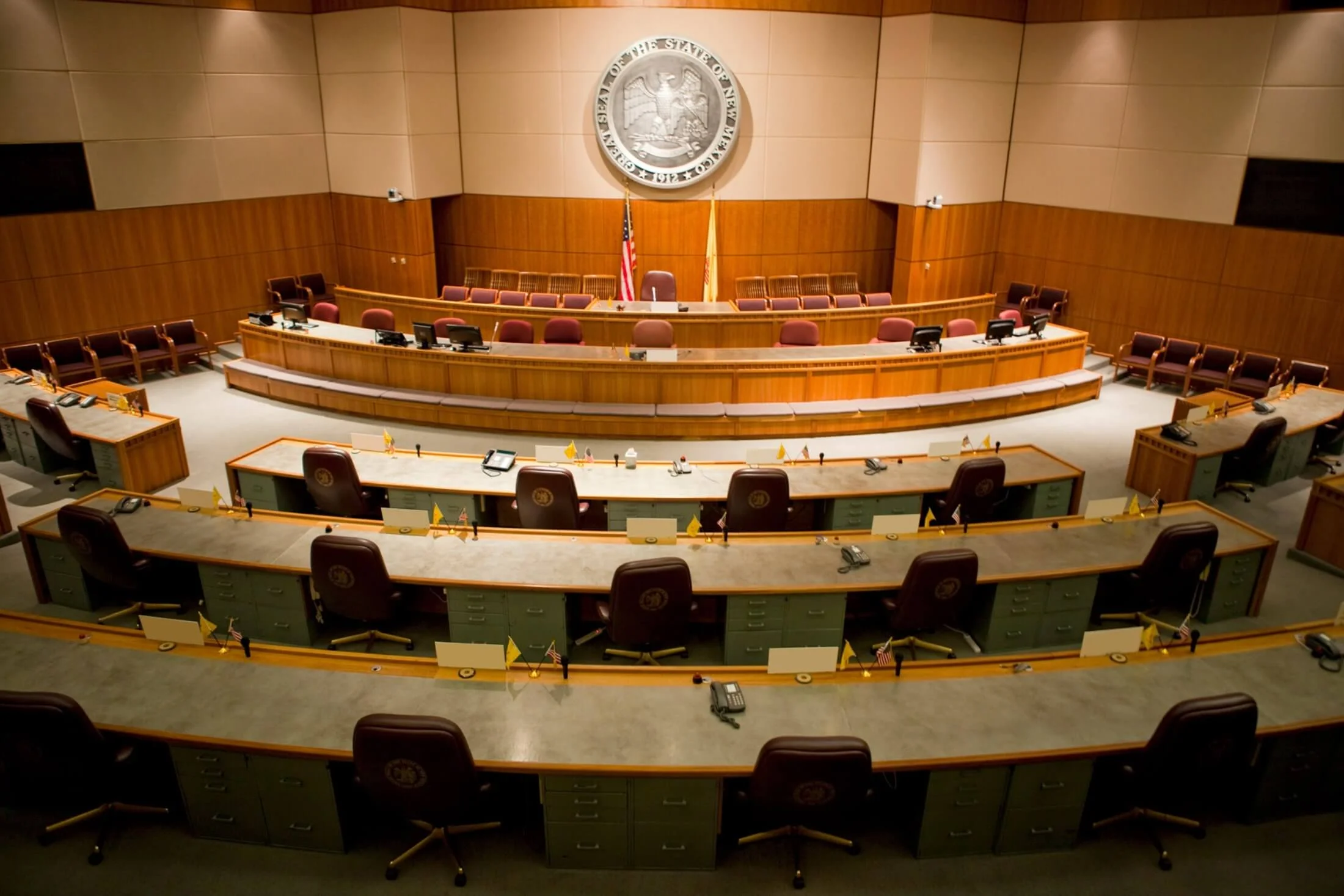Business Technology News Roundup: Jun 20, 2025
Explore the most important US IT news from June 16-20, 2025, including AI breakthroughs, cybersecurity advances, Tesla’s robotaxi launch, and key federal tech initiatives.
The week of June 16-20, 2025, was packed with pivotal developments in the US IT landscape. From groundbreaking advancements in artificial intelligence and cybersecurity to the much-anticipated launch of Tesla’s robotaxi service, the tech sector saw significant movement. Federal agencies and lawmakers also made headlines with initiatives aimed at modernizing data management, combating fraud, and seeking public input on emerging technologies. Here’s a detailed look at the five most important IT news stories that shaped the US tech scene last week.
Stories

The Transportation Security Administration (TSA) is advancing its use of artificial intelligence by integrating it into the Department of Homeland Security’s Geographic Information Infrastructure (GII). This platform is a critical, sensitive-but-unclassified ecosystem that enables federal, state, local, tribal, and territorial partners to share and access mission-critical geospatial data. TSA’s goal is to embed AI into this infrastructure to enhance real-time threat detection, improve situational awareness, and support rapid operational decisions at transportation hubs nationwide. By leveraging AI, TSA aims to provide a more dynamic, low-latency operational picture, enabling airports and commercial partners to monitor transportation networks and respond to emerging threats more efficiently. This move is expected to foster better coordination and interoperability across the Homeland Security Enterprise, ultimately strengthening the nation’s ability to mitigate risks and respond to security incidents in real time.

A bipartisan group of US senators—Eric Schmitt (R-MO), Maggie Hassan (D-NH), and Tim Sheehy (R-MT)—introduced the Medicare Transaction Fraud Prevention Act, aiming to deploy artificial intelligence as a frontline defense against Medicare fraud, waste, and abuse. The legislation proposes a pilot program that will use predictive risk-scoring algorithms to scrutinize payments for durable medical equipment and clinical diagnostic laboratory tests. Each fee-for-service transaction will be assigned a risk score, flagging irregular claims for human review by the Inspector General’s office. This approach is designed to help inspectors prioritize their investigations, focusing on the transactions most likely to be fraudulent. Importantly, participation in the pilot is opt-in for Medicare beneficiaries, ensuring privacy and consent. With Medicare fraud losses estimated at around $60 billion annually, this AI-driven initiative seeks to protect taxpayer dollars, safeguard seniors’ benefits, and reinforce the integrity of the Medicare system.

The National Institute of Standards and Technology (NIST) released a detailed report on its new internal-use chatbot developed for the National Cybersecurity Center of Excellence (NCCoE). Built using retrieval-augmented generation (RAG) large language model technology, the chatbot assists NCCoE staff in discovering and summarizing cybersecurity guidelines tailored to specific audiences and use cases. Key features include page-number citations for traceability, robust input validation to prevent prompt injection attacks, and deployment on a secure Nvidia-powered infrastructure. The chatbot aims to make vast stores of cybersecurity best practices more accessible and actionable for researchers and policymakers. NIST is inviting public comments on the chatbot’s technical and security aspects until August 4, 2025, with the goal of refining the tool and potentially inspiring similar deployments across federal agencies and industry.

Tesla made headlines by launching its highly anticipated robotaxi service in Austin, Texas, marking a watershed moment for autonomous vehicle technology in the US. The initial rollout is invite-only, with around 20 self-driving Model Y vehicles operating within a defined area of Austin. Passengers can hail rides via a Tesla app, with a flat fee of $4.20 per ride, and each vehicle is supervised by a Tesla safety monitor in the front passenger seat. The service avoids complex intersections, adverse weather, and is restricted to adults 18 and older. This cautious launch comes amid evolving state regulations for autonomous vehicles, with Texas recently passing new permit requirements for commercial self-driving services. Tesla’s move is seen as a critical step toward CEO Elon Musk’s vision of fully autonomous ride-hailing fleets, though the company acknowledges it still faces significant technical and regulatory hurdles before scaling nationwide.

The National Science Foundation (NSF) issued a formal request for information (RFI) to gather feedback on its list of key technology focus areas for the Directorate for Technology, Innovation, and Partnerships (TIP). This initiative is part of NSF’s ongoing effort to ensure that federal investments in science and technology remain aligned with national priorities and emerging opportunities. The current focus areas include artificial intelligence, high-performance computing, quantum science, robotics, biotechnology, advanced communications, data storage, cybersecurity, advanced energy, and materials science. NSF is particularly interested in how these areas have contributed to US leadership in technology, economic growth, and national security, and whether new areas should be added. The feedback will inform the TIP directorate’s investment roadmap, guiding future funding and workforce development strategies to maintain US competitiveness in critical technology sectors.

The Transportation Security Administration (TSA) is advancing its use of artificial intelligence by integrating it into the Department of Homeland Security’s Geographic Information Infrastructure (GII). This platform is a critical, sensitive-but-unclassified ecosystem that enables federal, state, local, tribal, and territorial partners to share and access mission-critical geospatial data. TSA’s goal is to embed AI into this infrastructure to enhance real-time threat detection, improve situational awareness, and support rapid operational decisions at transportation hubs nationwide. By leveraging AI, TSA aims to provide a more dynamic, low-latency operational picture, enabling airports and commercial partners to monitor transportation networks and respond to emerging threats more efficiently. This move is expected to foster better coordination and interoperability across the Homeland Security Enterprise, ultimately strengthening the nation’s ability to mitigate risks and respond to security incidents in real time.

A bipartisan group of US senators—Eric Schmitt (R-MO), Maggie Hassan (D-NH), and Tim Sheehy (R-MT)—introduced the Medicare Transaction Fraud Prevention Act, aiming to deploy artificial intelligence as a frontline defense against Medicare fraud, waste, and abuse. The legislation proposes a pilot program that will use predictive risk-scoring algorithms to scrutinize payments for durable medical equipment and clinical diagnostic laboratory tests. Each fee-for-service transaction will be assigned a risk score, flagging irregular claims for human review by the Inspector General’s office. This approach is designed to help inspectors prioritize their investigations, focusing on the transactions most likely to be fraudulent. Importantly, participation in the pilot is opt-in for Medicare beneficiaries, ensuring privacy and consent. With Medicare fraud losses estimated at around $60 billion annually, this AI-driven initiative seeks to protect taxpayer dollars, safeguard seniors’ benefits, and reinforce the integrity of the Medicare system.

The National Institute of Standards and Technology (NIST) released a detailed report on its new internal-use chatbot developed for the National Cybersecurity Center of Excellence (NCCoE). Built using retrieval-augmented generation (RAG) large language model technology, the chatbot assists NCCoE staff in discovering and summarizing cybersecurity guidelines tailored to specific audiences and use cases. Key features include page-number citations for traceability, robust input validation to prevent prompt injection attacks, and deployment on a secure Nvidia-powered infrastructure. The chatbot aims to make vast stores of cybersecurity best practices more accessible and actionable for researchers and policymakers. NIST is inviting public comments on the chatbot’s technical and security aspects until August 4, 2025, with the goal of refining the tool and potentially inspiring similar deployments across federal agencies and industry.

Tesla made headlines by launching its highly anticipated robotaxi service in Austin, Texas, marking a watershed moment for autonomous vehicle technology in the US. The initial rollout is invite-only, with around 20 self-driving Model Y vehicles operating within a defined area of Austin. Passengers can hail rides via a Tesla app, with a flat fee of $4.20 per ride, and each vehicle is supervised by a Tesla safety monitor in the front passenger seat. The service avoids complex intersections, adverse weather, and is restricted to adults 18 and older. This cautious launch comes amid evolving state regulations for autonomous vehicles, with Texas recently passing new permit requirements for commercial self-driving services. Tesla’s move is seen as a critical step toward CEO Elon Musk’s vision of fully autonomous ride-hailing fleets, though the company acknowledges it still faces significant technical and regulatory hurdles before scaling nationwide.

The National Science Foundation (NSF) issued a formal request for information (RFI) to gather feedback on its list of key technology focus areas for the Directorate for Technology, Innovation, and Partnerships (TIP). This initiative is part of NSF’s ongoing effort to ensure that federal investments in science and technology remain aligned with national priorities and emerging opportunities. The current focus areas include artificial intelligence, high-performance computing, quantum science, robotics, biotechnology, advanced communications, data storage, cybersecurity, advanced energy, and materials science. NSF is particularly interested in how these areas have contributed to US leadership in technology, economic growth, and national security, and whether new areas should be added. The feedback will inform the TIP directorate’s investment roadmap, guiding future funding and workforce development strategies to maintain US competitiveness in critical technology sectors.
Stay connected for next week’s highlights as we continue to track the most impactful stories at the intersection of business and technology.
Stay Connected: Follow NDIT Solutions on LinkedIn, for more insights and updates.
Need Expert IT Guidance? Our team of experienced consultants is here to help your business navigate the complex world of IT. Contact us today at info@nditsolutions.com or call 877-613-8787 to learn how we can support your technology needs.
See you next week for another round of essential IT news!

.webp)






